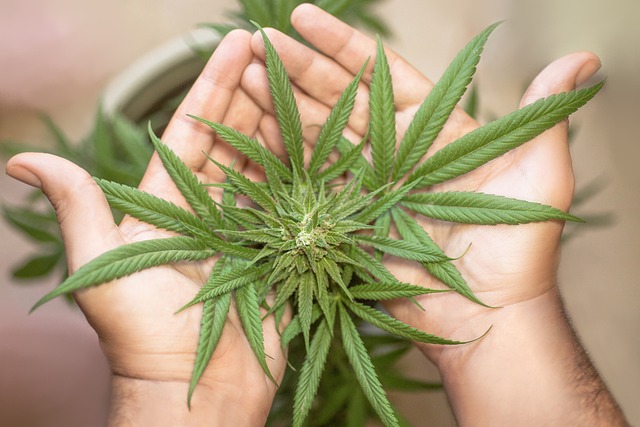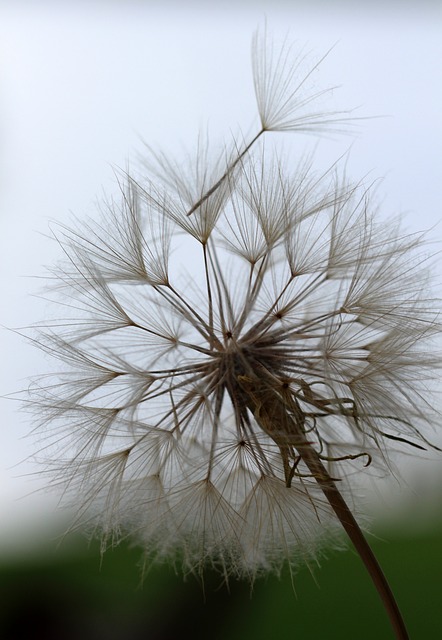THCA (Tetrahydrocannabinolic Acid), the non-psychoactive precursor to THC, has gained attention for its potential health benefits and is legal in California under the state's comprehensive cannabis regulations. With California's advanced cannabis laws, as per Proposition 64, THCA flower is accessible within the state's regulated market, offering consumers a wellness alternative that may provide anti-inflammatory, antiemetic, neuroprotective, and antioxidant effects without the psychoactive impact. The growing interest in THCA reflects a trend towards natural health practices and is supported by both scientific research and anecdotal evidence. As the legal landscape continues to evolve, the demand for THCA flower is likely to increase, solidifying its role as a wellness option in California's cannabis industry. Consumers interested in THCA should purchase from licensed retailers to ensure legality and compliance with local ordinances.
Explore the intricate world of THCA flower, a cannabinoid-rich botanical that’s captivating users and shaping the future of California’s cannabis industry. In this comprehensive guide, we delve into the rise of THCA’s popularity post-legalization, its science-backed potential benefits, and the nuances of its legality within the Golden State. From cultivation insights to understanding the entourage effect, this article offers a deep dive into growing, consuming, and processing high-quality THCA flower in California. Discover how it differs from THC, navigate the complex legal landscape, and explore top strains. We also discuss safety and testing protocols, economic impacts, and its role in wellness and therapeutic applications, highlighting emerging trends and innovations that are setting new standards for this burgeoning market. Join us as we unravel the multifaceted journey of THCA flower and its significant place within California’s thriving cannabis community.
- THCA Flower: An Overview of its Rise in Popularity Post-Legalization
- The Science Behind THCA: Potential Benefits and Effects
- THCA Flower Legality in California: A Comprehensive Guide
THCA Flower: An Overview of its Rise in Popularity Post-Legalization

THCA, or Tetrahydrocannabinolic Acid, is a cannabinoid found in raw cannabis plants that has garnered attention for its potential wellness benefits. As states across the U.S. have legalized cannabis and its derivatives, THCA flower—the buds containing the non-psychoactive acid form of THC—has seen a significant rise in popularity, particularly in California where its legal status allows for greater exploration and use. The interest in THCA flower is driven by its unique properties; unlike its psychoactive counterpart THC, THCA is not intoxicating, making it an appealing option for those seeking the potential health benefits of cannabis without the high. This has led to a burgeoning market for THCA-rich products, with consumers and researchers intrigued by its therapeutic potential, including its anti-inflammatory and neuroprotective effects. The rise of THCA flower in California is indicative of a broader shift towards more natural and holistic wellness practices, as well as a growing body of anecdotal and scientific evidence supporting the benefits of cannabinoids like THCA. As legal frameworks continue to evolve, the demand for THCA flower and its derivatives is likely to increase, further solidifying its place in the wellness sphere.
The Science Behind THCA: Potential Benefits and Effects

Delta-9 tetrahydrocannabinolic acid, commonly known as THCA, is a naturally occurring compound found in the Cannabis sativa plant. While THCA itself is non-psychoactive, it undergoes decarboxylation to become THC, the primary psychoactive component of cannabis, when exposed to heat or light. THCA’s potential benefits and effects have garnered significant scientific interest, particularly in the context of health and wellness. Preclinical research suggests that THCA may offer a range of therapeutic properties, including anti-inflammatory, anti-nausea, and anti-emetic effects. It is also being studied for its potential to act as a neuroprotectant and for its antioxidant qualities. In the realm of health applications, THCA’s interactions with the body’s endocannabinoid system could provide benefits for conditions like inflammation, nausea, and certain neurological disorders.
In terms of legal considerations, it is worth noting that the status of THCA varies across different jurisdictions within the United States. In California, where cannabis legislation is relatively progressive, THCA-rich products are legally available for both medical and adult-use markets, provided they comply with state regulations. The legal framework in California allows for the exploration and utilization of THCA’s potential benefits, making it a hub for research and innovation in the cannabinoid field. As such, residents and visitors to California have access to THCA flowers and other derivatives, which can be consumed in various forms for their believed health benefits, always within the confines of the law.
THCA Flower Legality in California: A Comprehensive Guide

THCA, or Tetrahydrocannabinolic Acid, is one of the many cannabinoids found within the Cannabis sativa L plant and its derivatives. While THC, its decarboxylated form, is well-known for its psychoactive effects when consumed as cannabis flower, THCA exists naturally in raw cannabis plants and possesses unique properties that are of interest to researchers and consumers alike. In California, the legal landscape regarding THCA flower is shaped by the state’s comprehensive cannabis regulations. Under California law, THCA itself is not explicitly legal or illegal; however, its derivation from the cannabis plant places it under the purview of Proposition 64, also known as the Control, Regulate and Tax Adult Use of Marijuana Act. This act legalized the recreational use of cannabis for adults over the age of 21, including all cannabinoids found in the plant. Therefore, possessing, purchasing, or using THCA flower is permissible within California’s regulated market, provided it adheres to the state’s cultivation, testing, and sales regulations. Consumers interested in the therapeutic effects of THCA must navigate this legal framework and ensure they are sourcing their products from licensed retailers to comply with state laws. It is crucial for users to stay informed about local municipal ordinances, as they can vary within California, potentially affecting access and legality at a more localized level.
THCA flower has emerged as a notable presence in the post-legalization landscape, offering a distinct and potential beneficial experience for consumers. The scientific exploration into its properties has shed light on the unique effects of this cannabinoid, contributing valuable insights to the ongoing discourse around cannabis use. As California continues to shape the future of THCA legality and accessibility, it remains at the forefront of this green revolution. For those interested in exploring the therapeutic potential of THCA flower within the confines of legal compliance, understanding the regulatory framework as outlined in our comprehensive guide is paramount. As the industry evolves and knowledge expands, the dialogue around THCA’s legal status in California will undoubtedly continue to be a focal point for enthusiasts, researchers, and policymakers alike.
